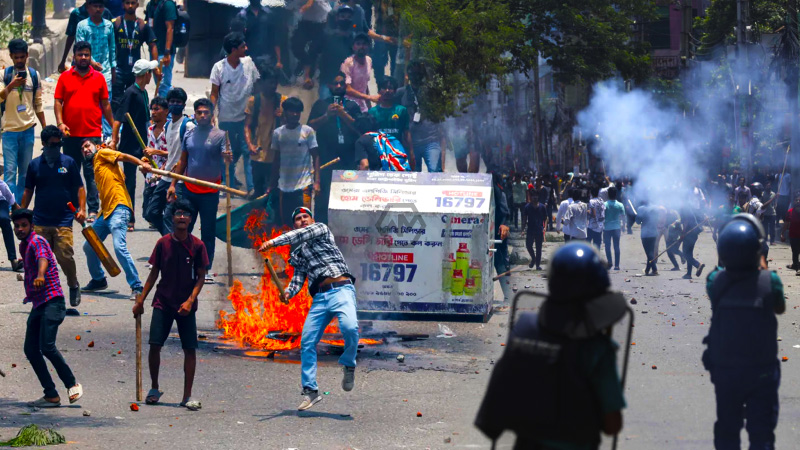- Bangladesh has implemented a communications blackout, including mobile internet and news broadcast restrictions.
- The move comes as protests over discriminatory job quotas have escalated, resulting in 39 deaths this week.
- The government cites security concerns as the reason for the blackout.
The Bangladeshi government has responded to escalating student-led protests by imposing a nationwide communications blackout. Mobile internet services and news broadcasts have been shut down as the unrest over job quota policies continues to escalate, resulting in significant violence and casualties.
Protests, driven by demands to end discriminatory job quotas, have seen tens of thousands of students take to the streets. The violent clashes have led to the deaths of 39 people this week alone.
Communications Blackout in Bangladesh as Protests Over Job Quotas Intensify
In response to mounting unrest, the Bangladeshi government has imposed a comprehensive communications blackout, blocking mobile internet access and halting news broadcasts. This drastic measure aims to curb the spread of information amidst ongoing student-led protests. The protests, demanding an end to discriminatory job quotas, have resulted in significant violence, with 39 reported fatalities this week.
The blackout reflects the government’s strategy to manage the situation by limiting public communication and controlling the narrative surrounding the protests. The shutdown includes not only mobile internet but also social media platforms, which have been instrumental in organizing and spreading news about the demonstrations.
The student-led protests have gained substantial momentum, with thousands rallying against what they perceive as unfair job quota systems. The unrest has become increasingly violent, leading to clashes with law enforcement and exacerbating the crisis.
The government’s response highlights the delicate balance between maintaining order and respecting freedom of information. As the situation develops, the international community will be watching closely to understand the implications of these measures on both the protests and the broader societal impact.
The communications blackout in Bangladesh underscores the government’s attempt to control the increasingly volatile situation caused by widespread protests over job quotas. As tensions remain high, the international community‘s attention will likely focus on the balance between security measures and the right to information.
“The government has imposed a communications blackout, blocking mobile internet and news broadcasts, as protests over job quotas turn increasingly violent, resulting in 39 deaths this week.”



